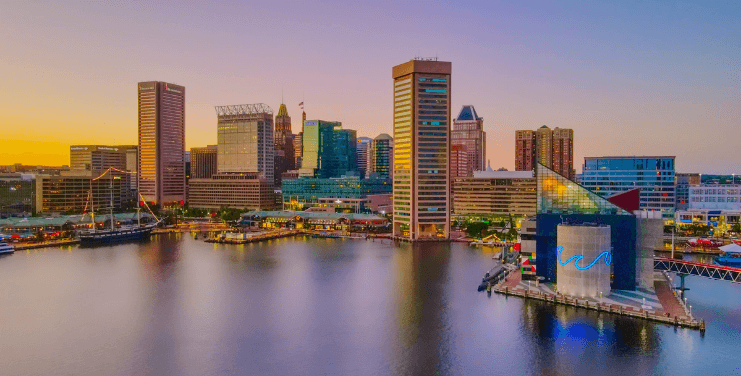Key Insights:
- Texas has become a growing hub for tech, innovation and venture capital.
- Black tech workers and founders say the uptick has not completely extended to their community.
- Progressive cities within the state grapple with conservative policies as the future of the Black tech ecosystem hangs in the balance.
The onset of the pandemic shifted technology, venture and innovation hubs throughout the U.S. Founders suddenly found they did not have to be in markets like San Francisco or New York to reap the benefits of tech ecosystems, while burgeoning tech hubs, including those in the midwest and the south, grew more entrenched.
The Plug spoke with Black founders in Texas to learn what it’s like to operate in this changing landscape that has seen large, incumbent tech companies like Hewlett Packard, Oracle and Tesla set up shop in the Lone Star State.
Texas’ capitol, Austin, is also home to thriving Black-led companies like Journey Foods, a food supply chain software company helmed by Riana Lynn; Amass, a private investment platform aimed at growing Black generational wealth led by Daron Roberts; and Bandwagon, a tech-enabled live events and experiences company founded by Harold Hughes.
While these founder’s industries may differ, they are all operating in a market that’s tracking towards growth.
“I see a reemergence of the south in general and as you find tech talent from the coasts moving here,” Lynn told The Plug. “The next five to eight years will be vastly different, where money is flowing and people are spending their time and investing in real estate.”
According to the Austin Chamber of Commerce, tech jobs in the city are far outpacing the national average. As of 2020, 17 percent of jobs opening in the city were in tech, compared to nine percent nationally. Information technology is the fastest growing tech sector in Austin, representing 42 percent of the city’s tech jobs.
From 2015 to 2020 the number of tech companies that started in the city grew by 34 percent. But not everyone is included in Austin’s tech boom.
“We’re a progressive outpost in a state that is not, but we’re losing Black professionals faster than any other major American city,” Roberts told The Plug. “You see two different curves in terms of Black professionals but then you see all these increased venture capital and Fortune 500 companies moving here. This is an opportunity to come in and chart a path.”
As the tech industry took root in the city, its Black professionals were notably left out. The number of Black tech workers in Austin decreased by five percent over a nearly 20-year period. Every other racial group and ethnicity saw gains in the number of tech workers during this same time period, with the number of white tech professionals growing the most by 115 percent from the year 2000 to 2016.
Roberts said that the brain drain among Black tech workers from Austin is sending talent to nearby markets in Dallas and more notably Houston, which has historically been a more open place for Black professionals.
2017 data from the Center for American Progress, a public policy research organization, found that 12 percent of Houston’s tech workforce was Black, third only to Washington D.C. (17 percent) and Atlanta (21 percent) -both cities have a higher percentage of Black residents overall.
Progressive pockets throughout the state were still impacted by conservative policies that were a point of contention for tech companies in the state.
When Texas enacted new abortion restrictions, among the most restrictive in the country, tech companies were largely silent on the issue that impacted their ability to protect employees without skirting the new law.
“I know so many founders where they may be here but their team may not be, because of that Texas hasn’t been able to capitalize on the opportunities it’s had based on some of the political decisions it’s made,” Hughes told The Plug.
While Hughes is based in Austin, his company is headquartered in Greenville, South Carolina. He pointed out that tax incentives for large companies to locate to the state don’t necessarily exist for startups.
“I’m a remote CEO and we’re thinking about the rights of LGBTQIA individuals, the rights of women, so I’m not trying to convince any of them to move to Texas,” Hughes said. “If you’re a big company you may look to ‘what decision can I make that impacts the financial bottom line’ but as a Black founder whose building, you understand that because of some of the decisions that the state has made you may get that talent elsewhere.”
Texas presents a juxtaposition in its selective tech boom but on the whole it’s a place that is changing to be more progressive, according to Lynn.
“Everyone talks about the pseudo-progressivism mashed with the racism and people marching for Trump. You also feel a lot of evolution and growth at the same time,” she said. “I think people can put up with that, it feels like there’s this tailwind of progressive growth, Texas will be a purple state in a year or two.”








